Madonna in Prayer
Oil on canvas, 67 x 55 cm
Contemporary frame, in gilded wood, finely carved, 74 x 60 cm
The refined Madonna in Prayer examined is traditionally attributed to Carlo Cignani (1628-1719), one of the greatest interpreters of late-Baroque Emilian classicism. The work presents all the stylistic characteristics typical of the painter: the smoothness of the faces, the softness of the chiaroscuro passages and the ecstatic composure of the expression, as also highlighted by comparisons with the known works of the master. Worth mentioning are the Virgin and Child from the Condé Museum (Château de Chantilly) for the same ecstatic pose and the smooth treatment of the flesh, but also the Saint Cecilia that went on the antiques market in 2015, with which it probably shares the same cartoon, given the same composition (Freeman Fine Arts, Philadelphia USA, 01/27/2015 - Lot 36, $ 6,000).
Cignani was a student of Francesco Albani and inspired by Guido Reni and Correggio. Founder of the Accademia del Nudo in Bologna and active in Parma, Forlì and Rome, his painting stands out for its formal elegance, delicate chromaticism and compositional balance. His students include Marcantonio Franceschini and Donato Creti.
The Virgin is depicted here with her gaze turned to the sky, immersed in an atmosphere of intense spirituality, with one hand emphatically brought to her chest, while in the other she holds a prayer book. The light slides delicately over the face and hands, emphasizing the candor and purity of the figure, alluding to her role as mediator towards the Son.
The Virgin's attitude of prayer and meditation is iconographically linked to both the theme of the praying Madonna and that of the Virgin Annunciate. The position of the hands, the expression of subdued acceptance and the elegance of the blue cloak recall numerous depictions of the Annunciation, in which Mary, surprised by the divine presence, expresses her "fiat" with grace and humility.
This iconography was very dear to 17th-century devotional painting, especially in the Emilian area, where Cignani worked. In particular, the intimate and collected rendering of the scene finds strong consonances with models by Correggio and Guido Reni, to whom Cignani looks as expressive ideals of spirituality and composed beauty.
Professional packaging and insured shipping to ensure maximum safety in transport.
For further information do not hesitate to contact us +39 3335747733 – info@dequart.com
Possibility of VIDEO CALLS and direct viewings by appointment in MILAN and OMEGNA (Vb).



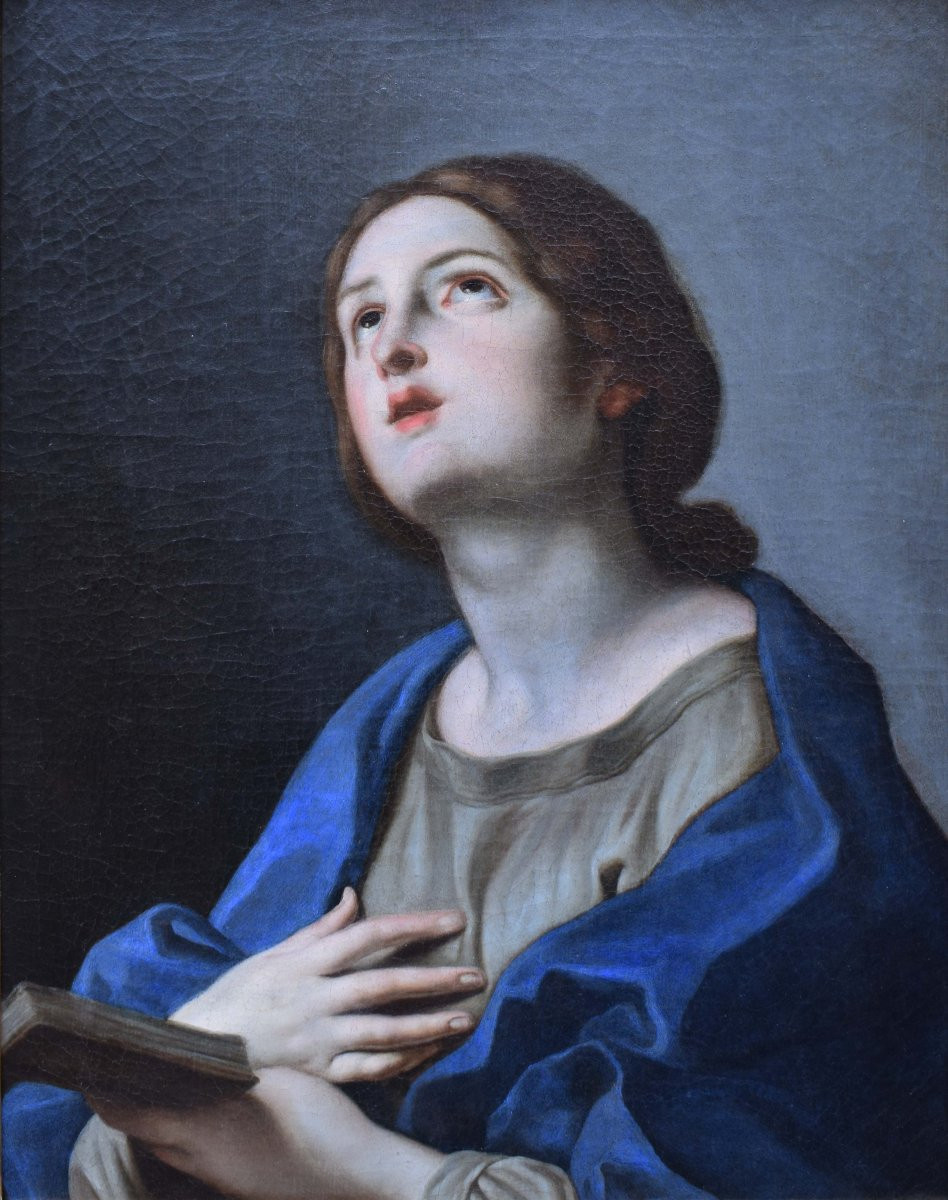
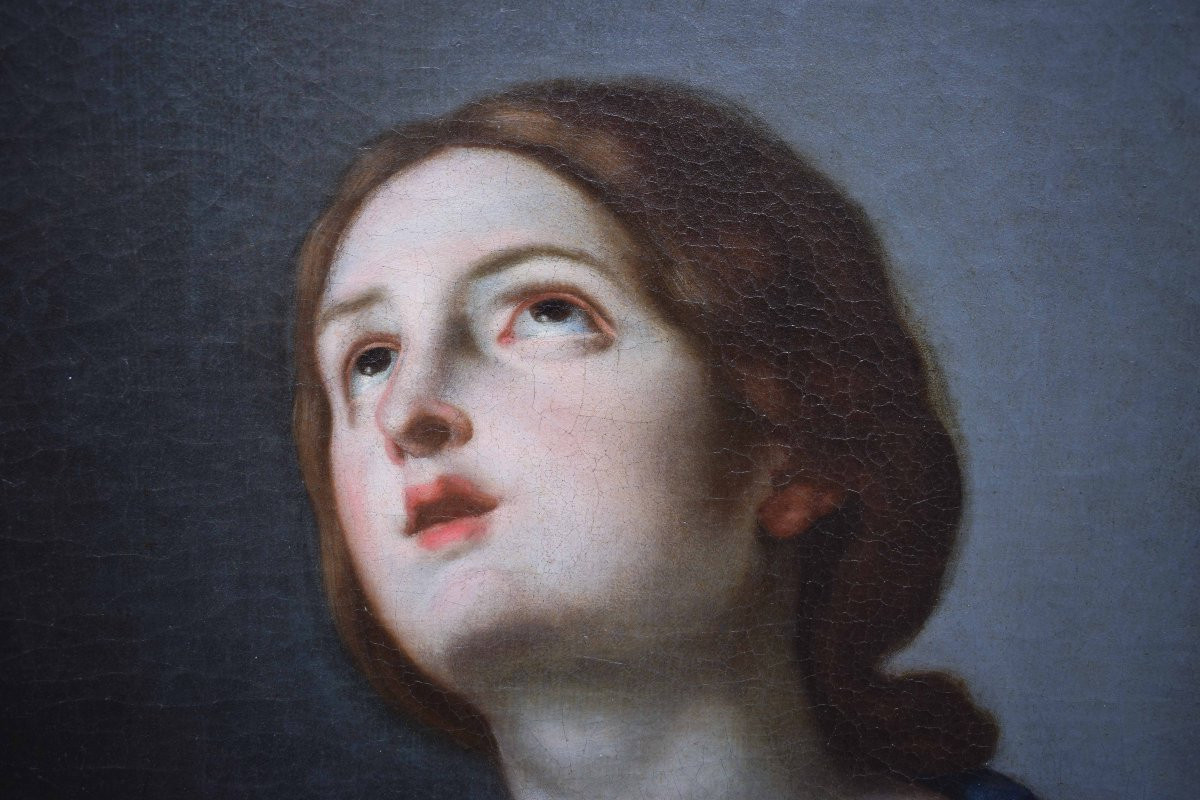
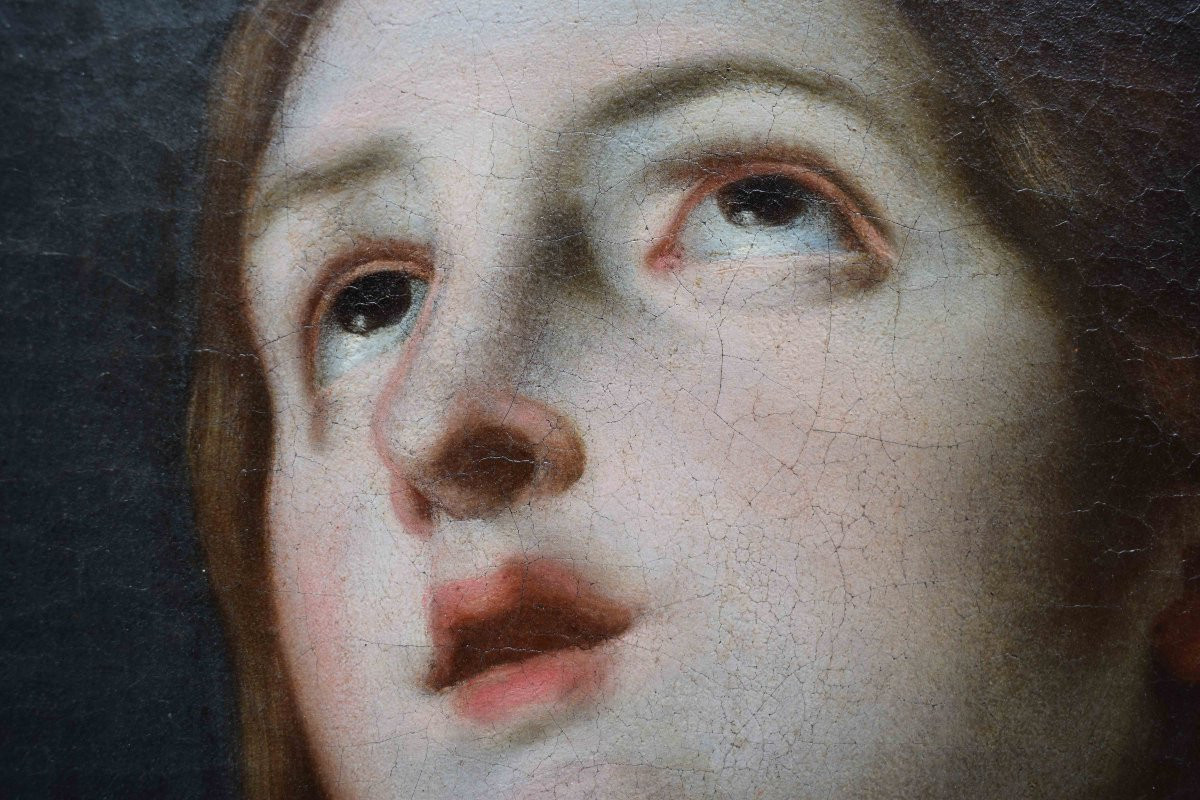


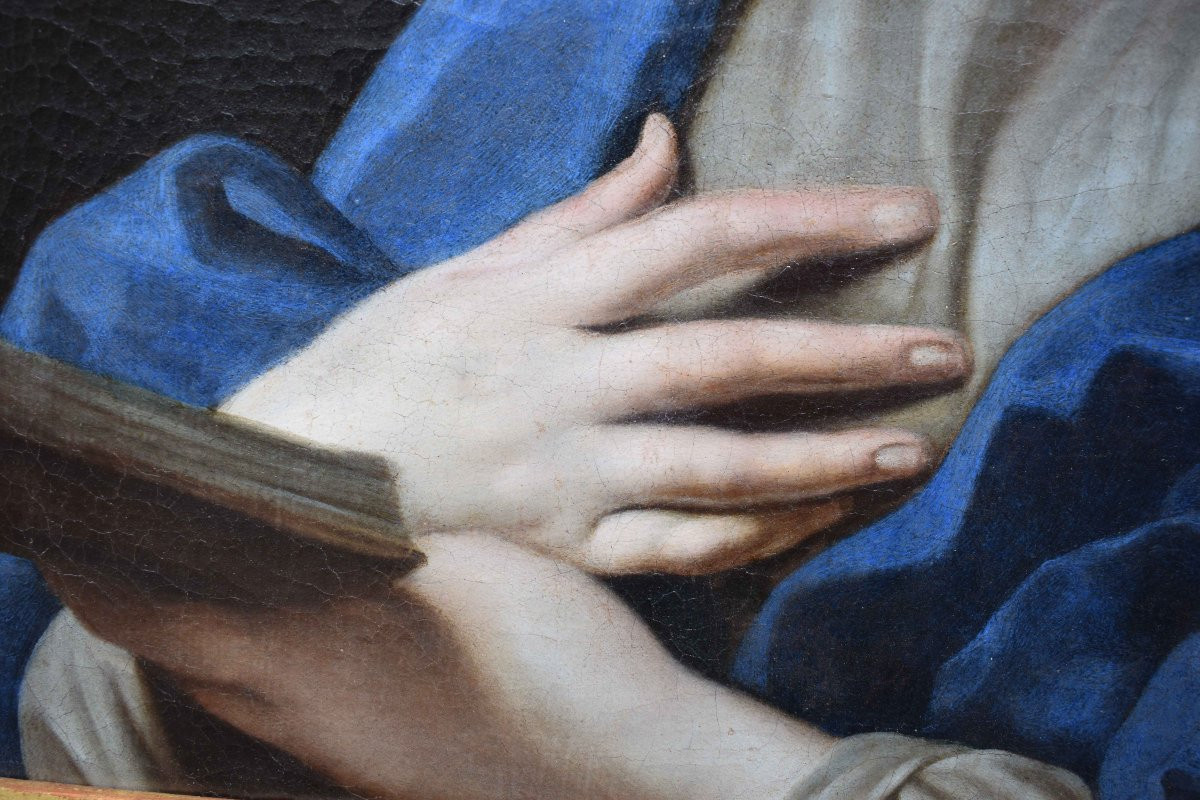
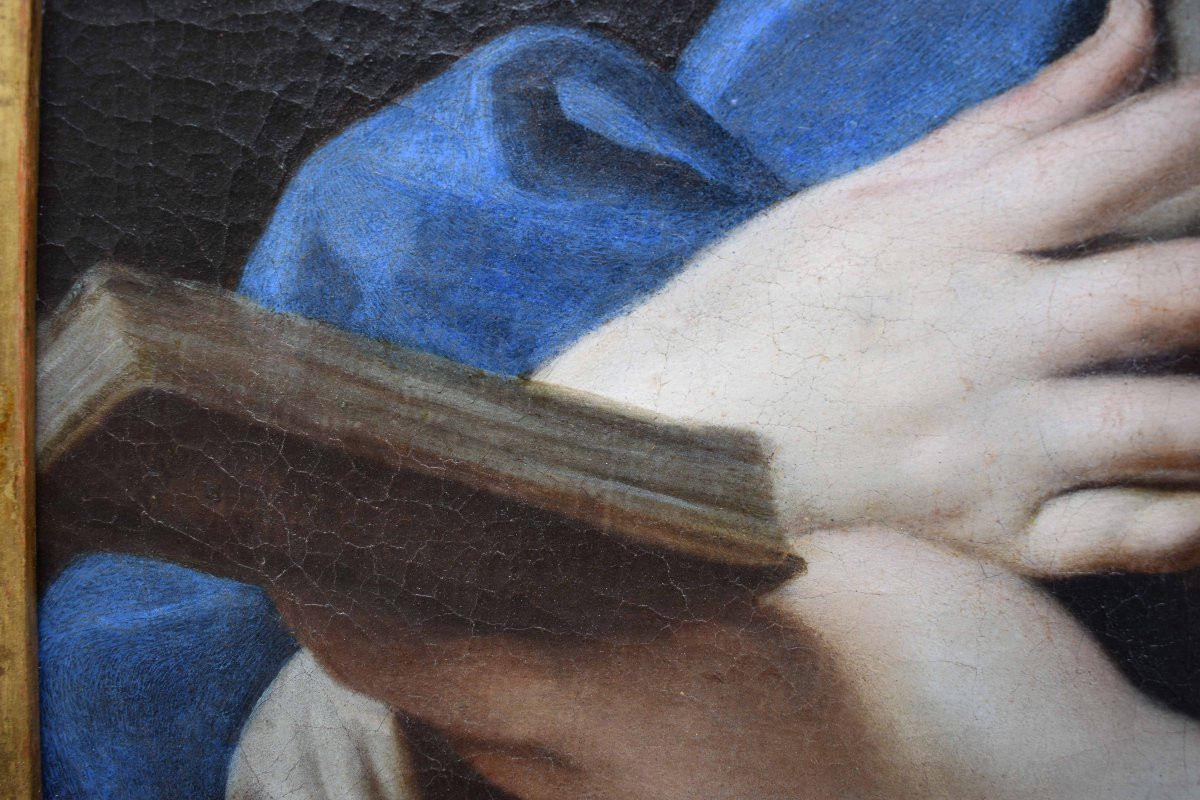


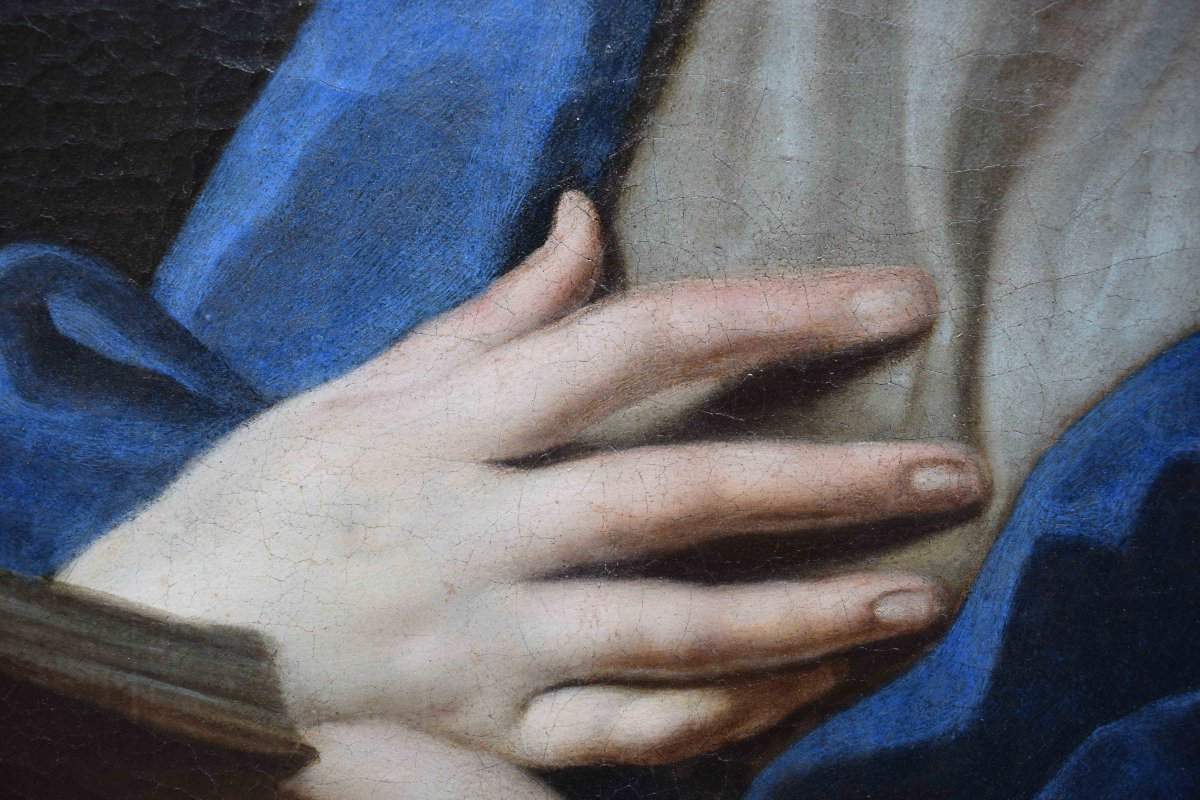












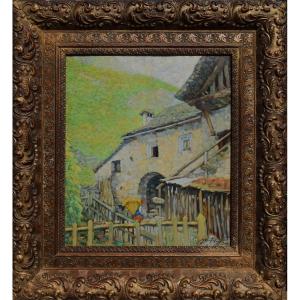




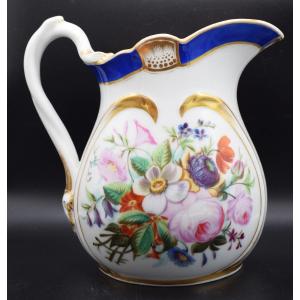





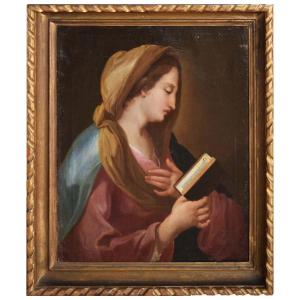
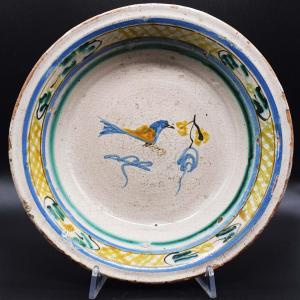

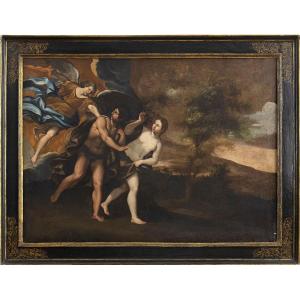

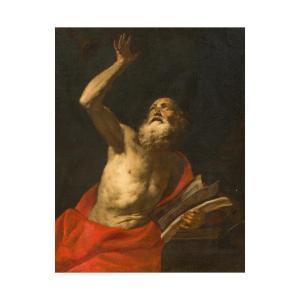
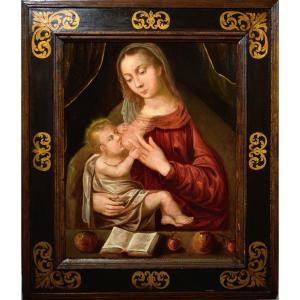




 Le Magazine de PROANTIC
Le Magazine de PROANTIC TRÉSORS Magazine
TRÉSORS Magazine Rivista Artiquariato
Rivista Artiquariato